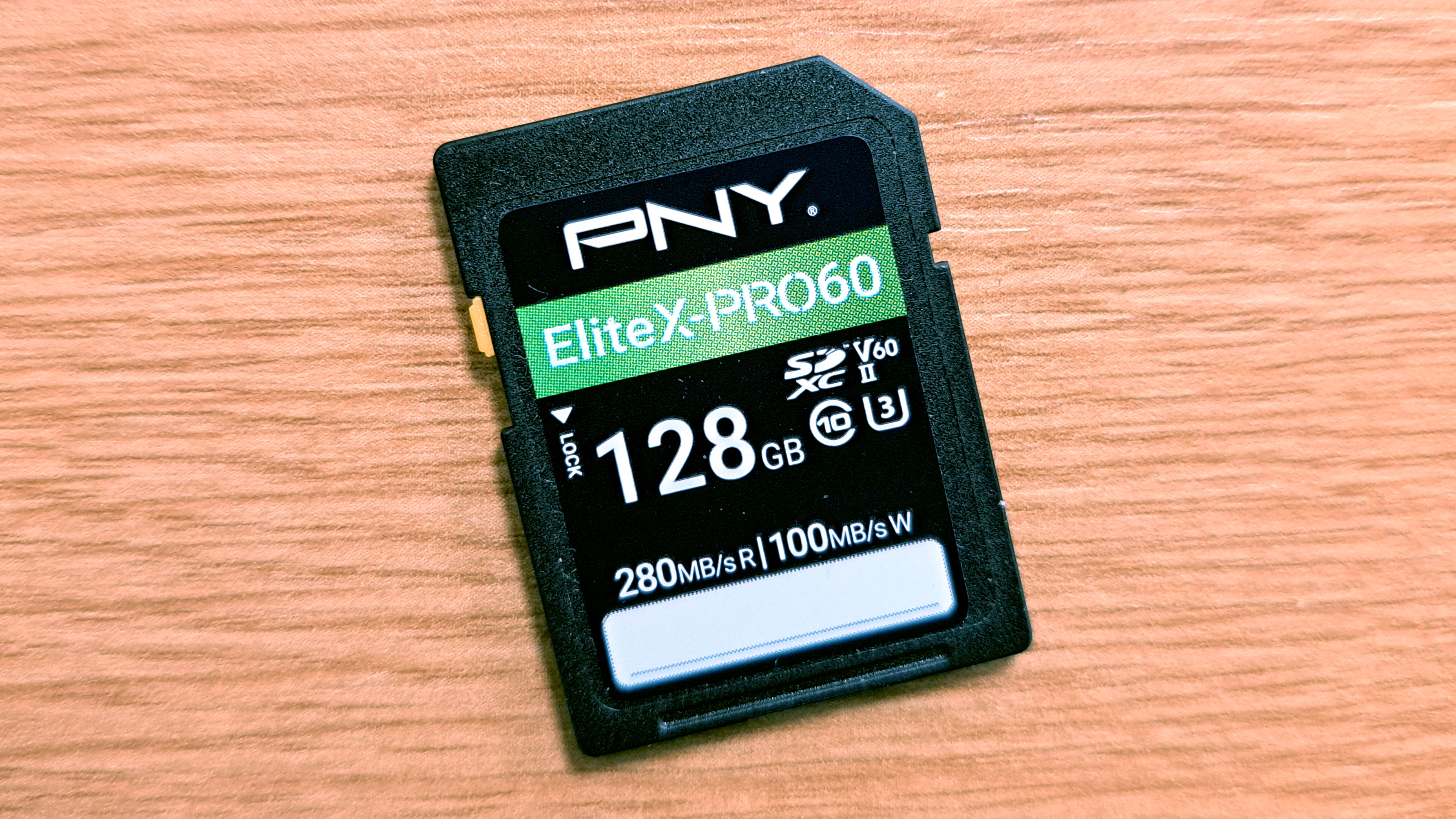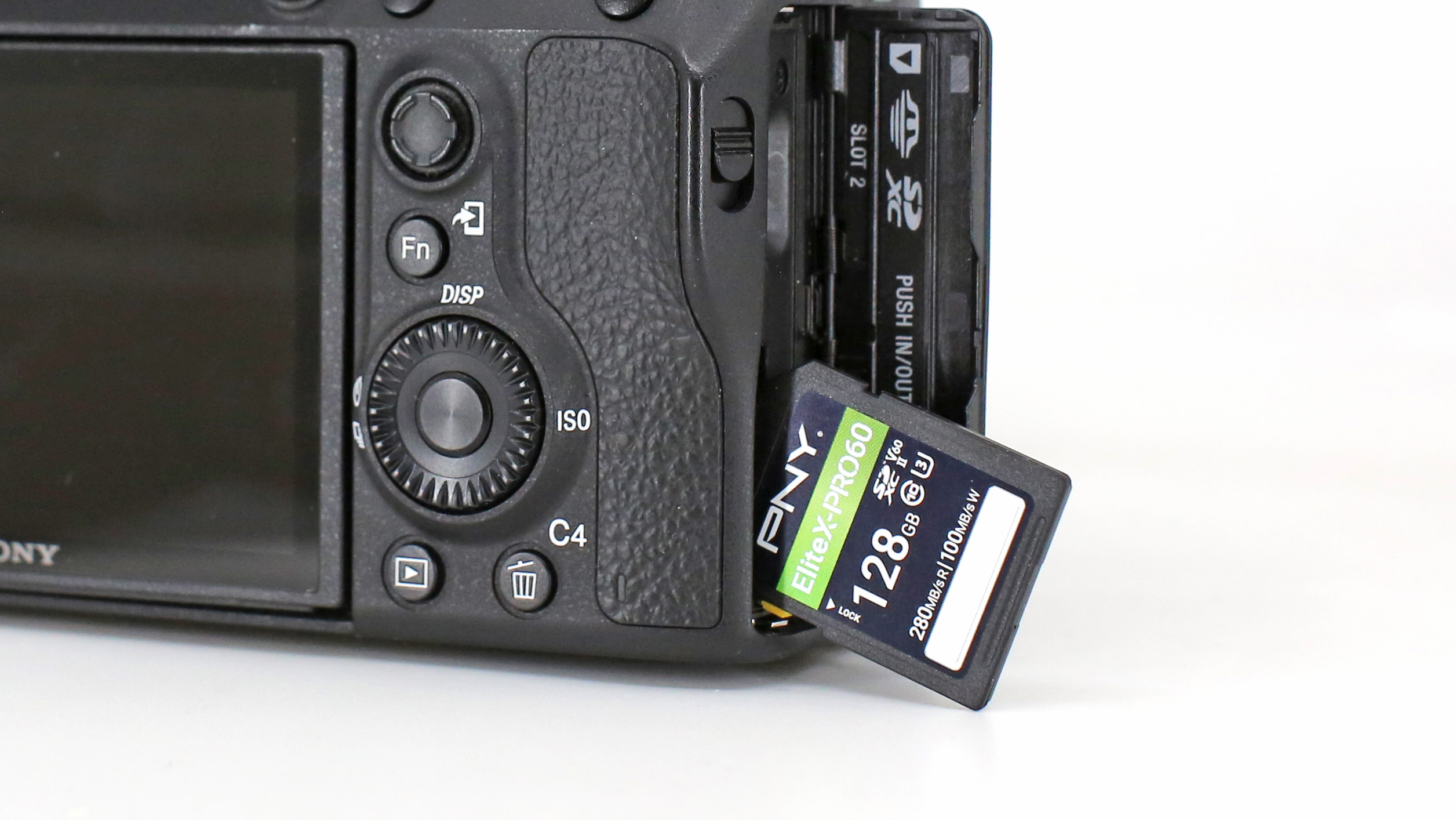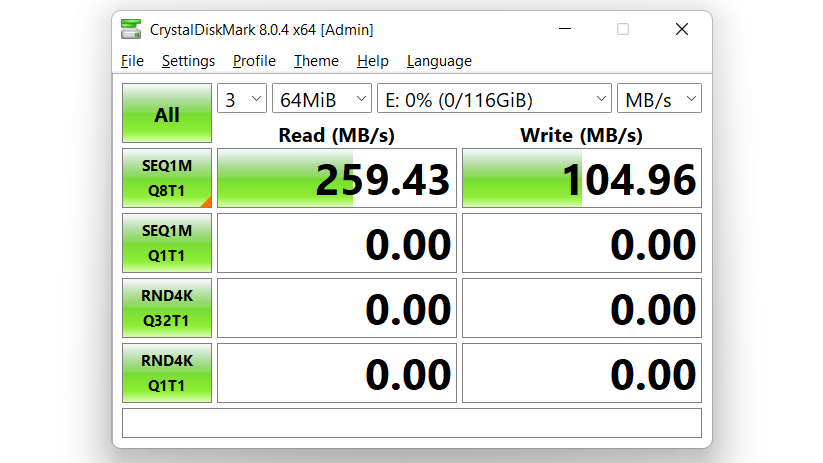Digital Camera World Verdict
The PNY EliteX-PRO60 is an ideal balance of price and performance. It's capable of read and write speeds fast enough for the vast majority of stills and video requirements, while being one of the least expensive UHS-II cards available. Offering such superb value, it's a smart choice.
Pros
- +
Fast performance
- +
Keenly priced
- +
Lifetime warranty
Cons
- -
Write speed varies by capacity
- -
Only three capacity options
Why you can trust Digital Camera World
PNY offers several classes of SDXC card. This EliteX-PRO60 is the second fastest model in the brand's SD card line-up - the top spot being occupied by the EliteX-PRO90. Naturally, the PRO90 boasts faster read/write speeds than the PRO60 we have here, but the PRO60 is still no slouch, thanks to its rapid UHS-II transfer bus. And the best bit is the PRO60 costs around one third the price of a PRO90 card of the same capacity (at the time of writing), making it potentially terrific value if it performs as advertised.
Key features
Thanks to its fast UHS-II bus interface, The EliteX-PRO60 is capable of a mighty 280MB/s maximum read speed. Write speed isn't quite so clear-cut, as it varies according to the capacity you choose. The PRO60 is available in three capacity options: 128GB, 256GB and 512GB, which have 100MB/s, 180MB/s and 150MB/s max write speeds, respectively (making the 256GB variant the pick of the bunch). However, despite these considerable differences in maximum write speeds, all three cards have the same V60 (Video Speed Class 60MB/s) rating, meaning they will sustain a minimum 60MB/s write speed. This should be sufficient for recording 4K Ultra HD video, as well as high-res RAW stills at fast burst rates.
The EliteX-PRO60 resembles any other SD card and is only distinguished by its label. One noteworthy feature is the two rows of contacts on the back of the card. You'll find these on any UHS-II SD card, as they enables UHS-II cards to operate at around twice the speed of UHS-I SD cards, which only sport a single row of contacts. The EliteX-PRO60 is backed by a limited lifetime warranty in certain regions, for extra peace of mind.
Performance
To accurately verify PNY's speed claims for the EliteX-PRO60 we used the CrystalDiskMark storage benchmark. It revealed a maximum read speed of 259.43MB/s, and a 104.96MB/s write rate - commendably close to PNY's advertised speeds.
These software figures were backed up by real-world file transfer tests, where the EliteX-PRO60 managed a sustained 258MB/s when transferring files to a computer (read speed) and a sustained 101MB/s writing a single large file to the card. Multiple small files will always write slower than a single large file, but even then the EliteX-PRO60 sustained 72.6MB/s when writing 5 gigabytes-worth of JPEG files to the card.
| Header Cell - Column 0 | Read | Write |
|---|---|---|
| Large single file | 258MB/s | 101MB/s |
| Multiple small files | Row 1 - Cell 1 | 72.6MB/s |
Switching to in-camera testing using our Sony a7R III test camera, we found the EliteX-PRO60 was able to record 4K video at the camera's maximum 100Mbps bit-rate with no dropped frames.
A continuous burst of 31 RAW files shot using the a7R III's maximum Hi+ burst mode took approximately 25 seconds to transfer from the camera's internal buffer over to the memory card. This burst of images totaled 2.47 gigabytes, equating to a transfer speed of 101.17MB/s - right on par with PNY's advertised write speed.
The best camera deals, reviews, product advice, and unmissable photography news, direct to your inbox!
Verdict
Memory cards don't always perform as advertised, but the PNY EliteX-PRO60 consistently impressed us with its reliably high performance. Sure, it's not the fastest SD card on the market, but with the 256GB version costing around USD $62 at the time of writing (Feb 2024), it is one of the least expensive. Considering that the PRO60's read and write speeds are fast enough for the vast majority of shooting scenarios, it makes far more sense to save some cash with this card than blow mega-bucks on something quicker, but which would never be fully utilized.
Ben is the Imaging Labs manager, responsible for all the testing on Digital Camera World and across the entire photography portfolio at Future. Whether he's in the lab testing the sharpness of new lenses, the resolution of the latest image sensors, the zoom range of monster bridge cameras or even the latest camera phones, Ben is our go-to guy for technical insight. He's also the team's man-at-arms when it comes to camera bags, filters, memory cards, and all manner of camera accessories – his lab is a bit like the Batcave of photography! With years of experience trialling and testing kit, he's a human encyclopedia of benchmarks when it comes to recommending the best buys.




